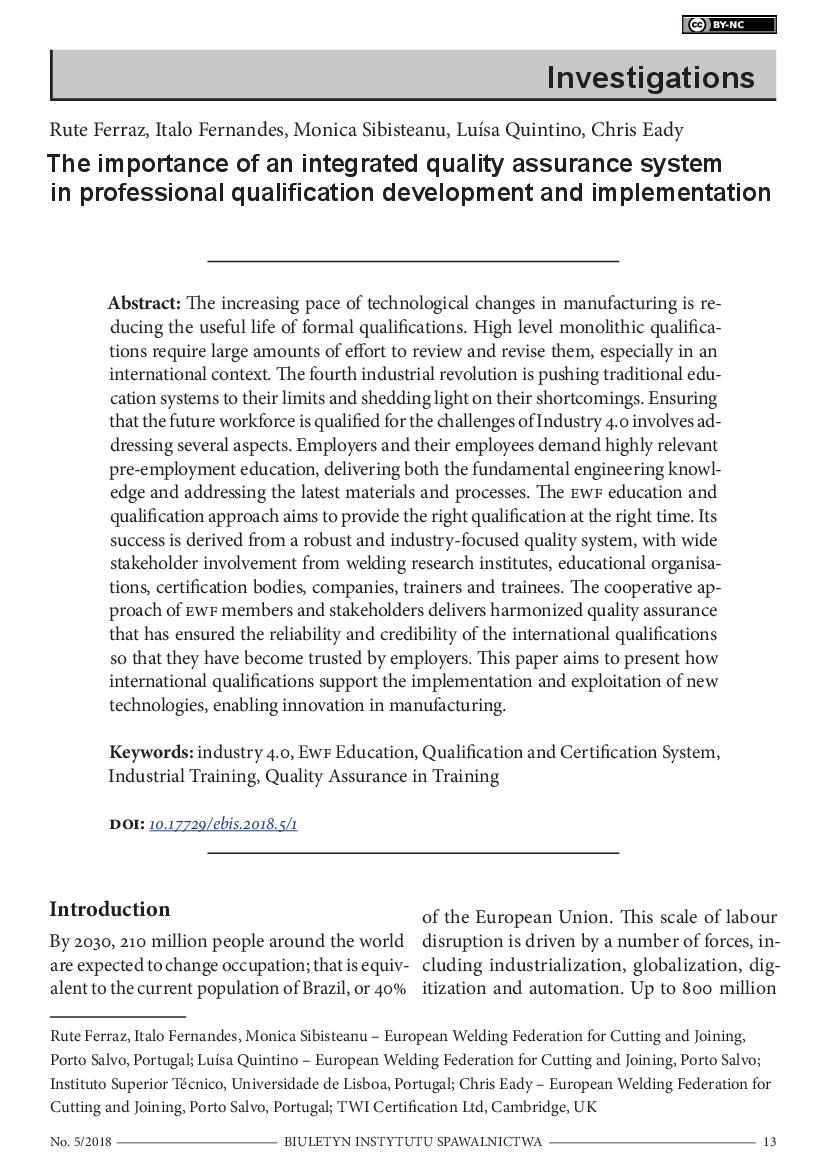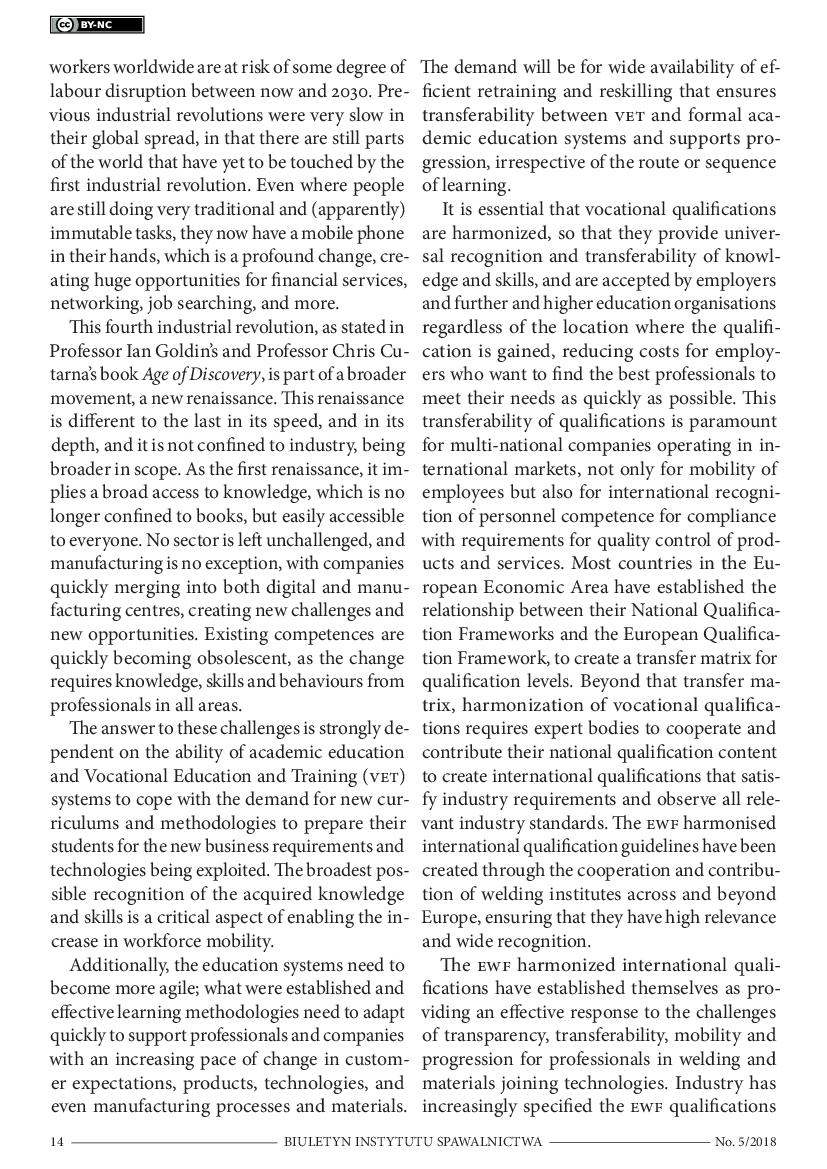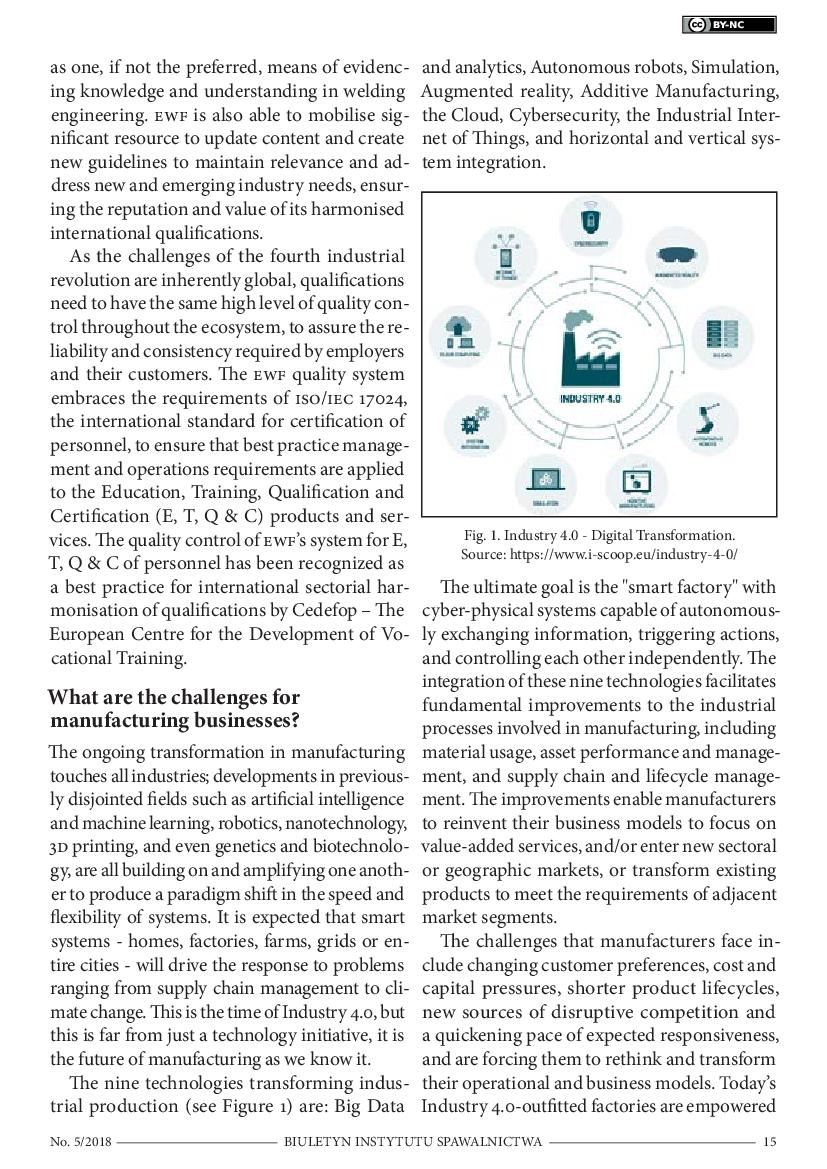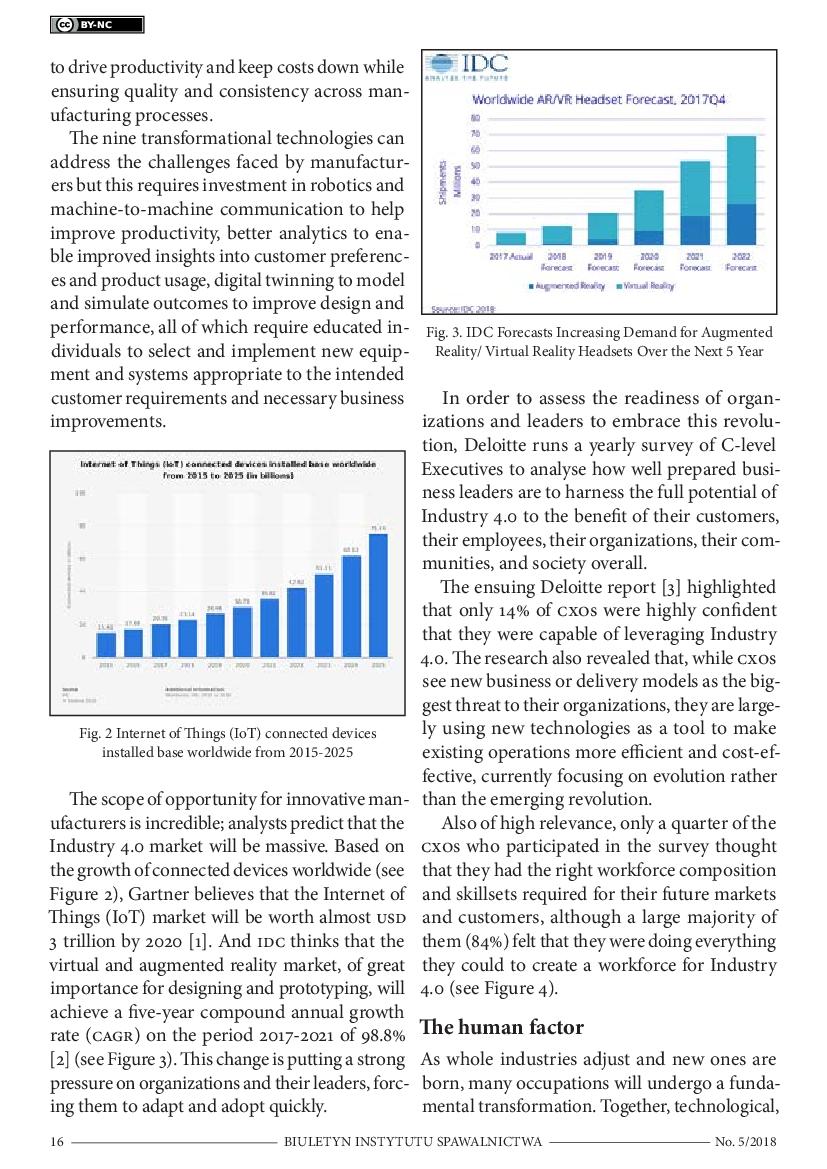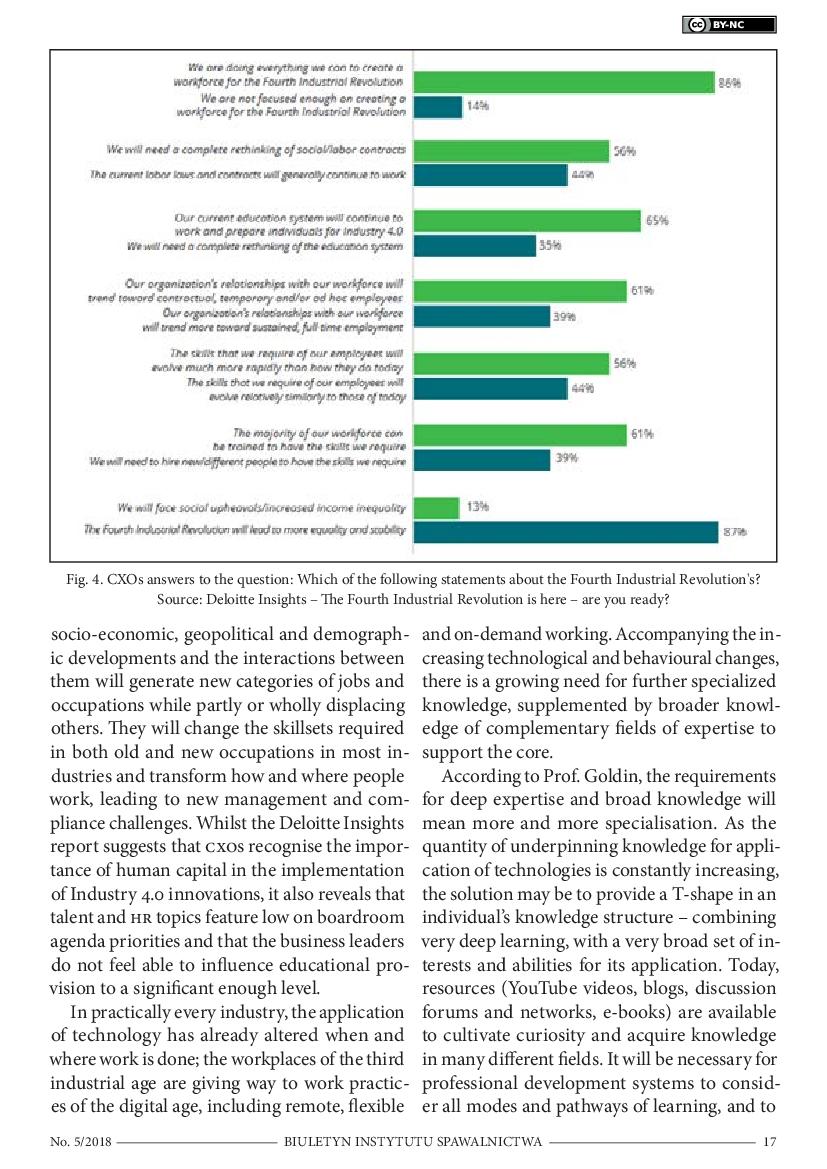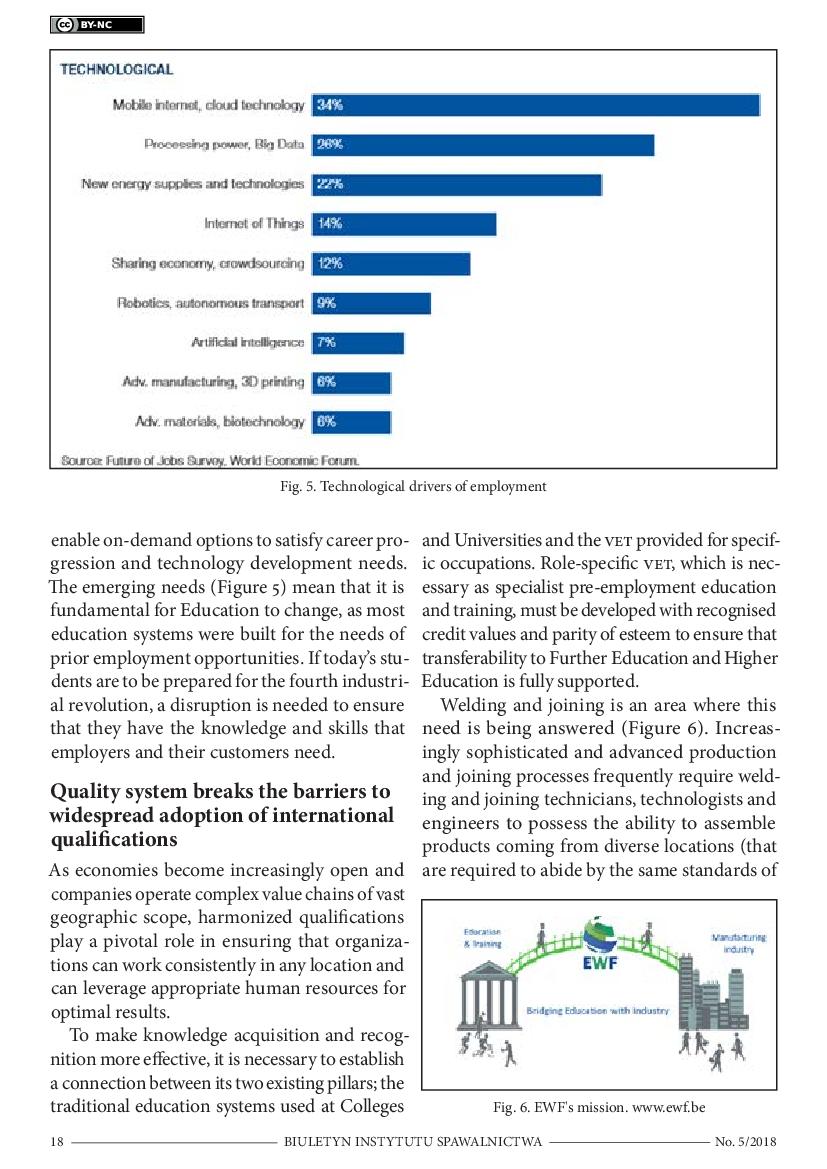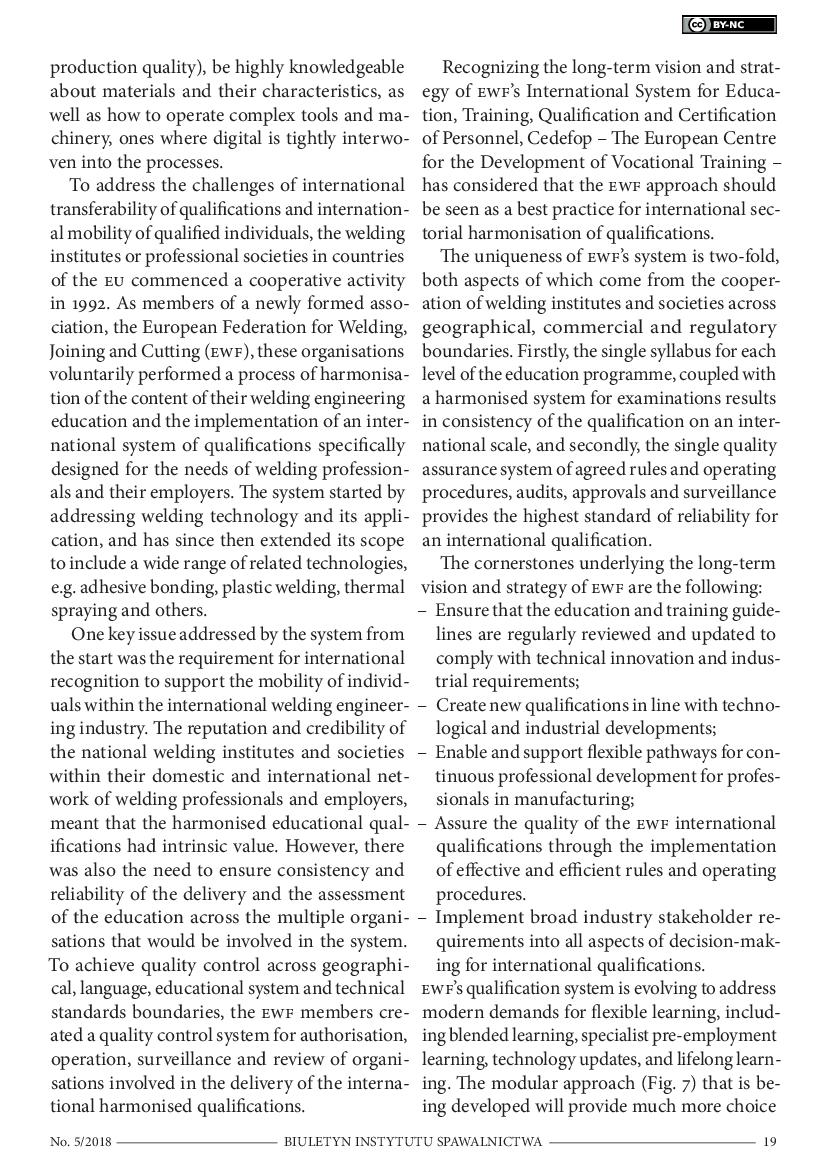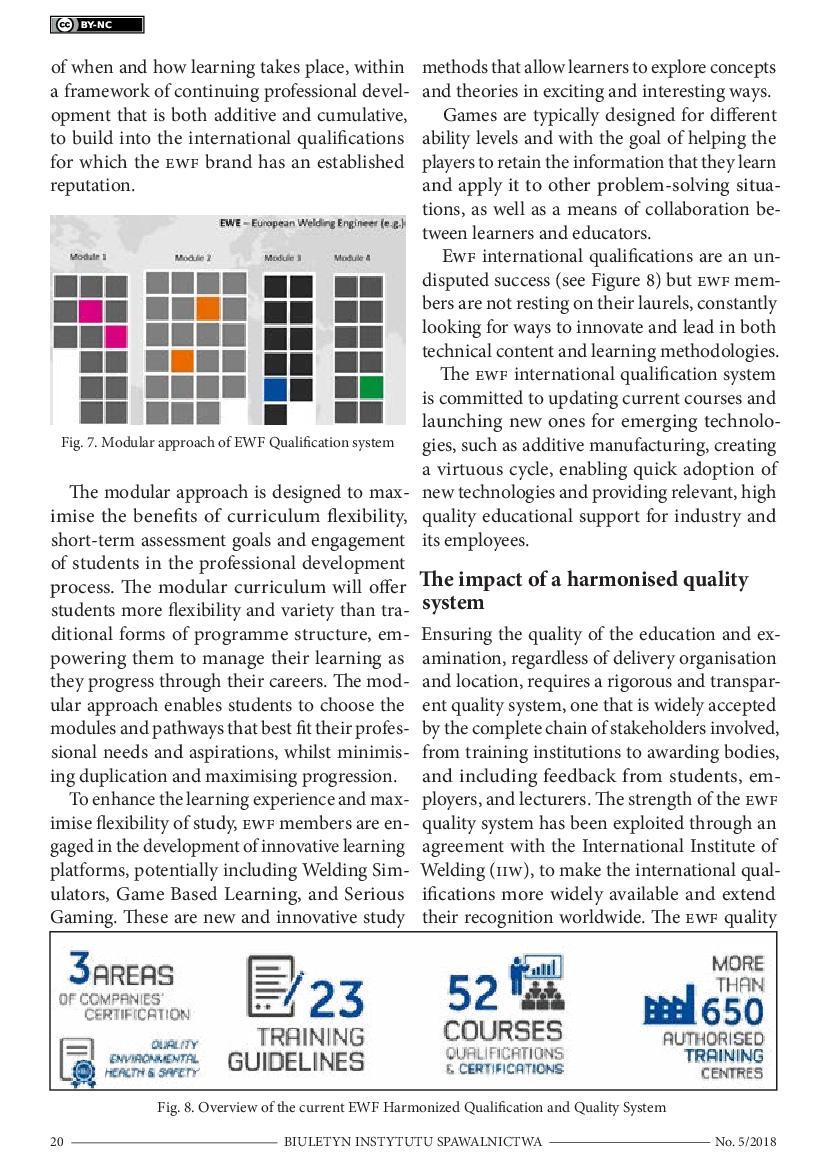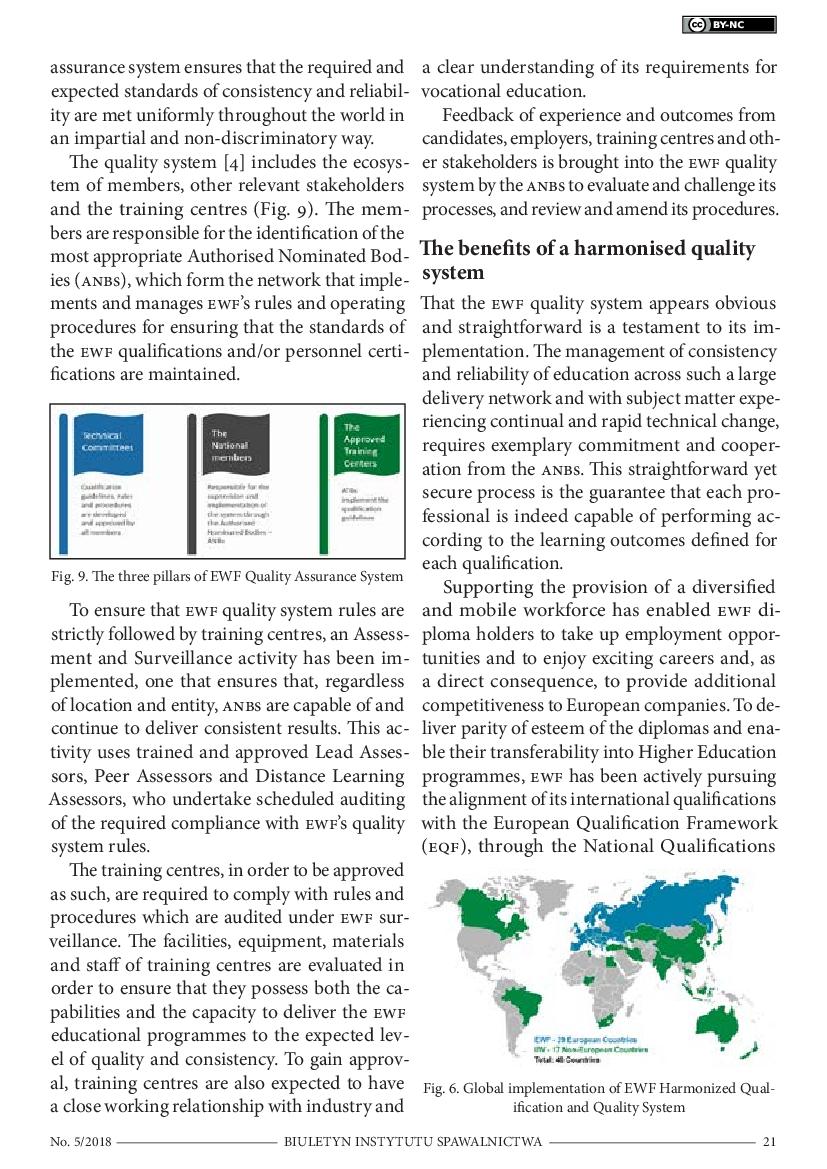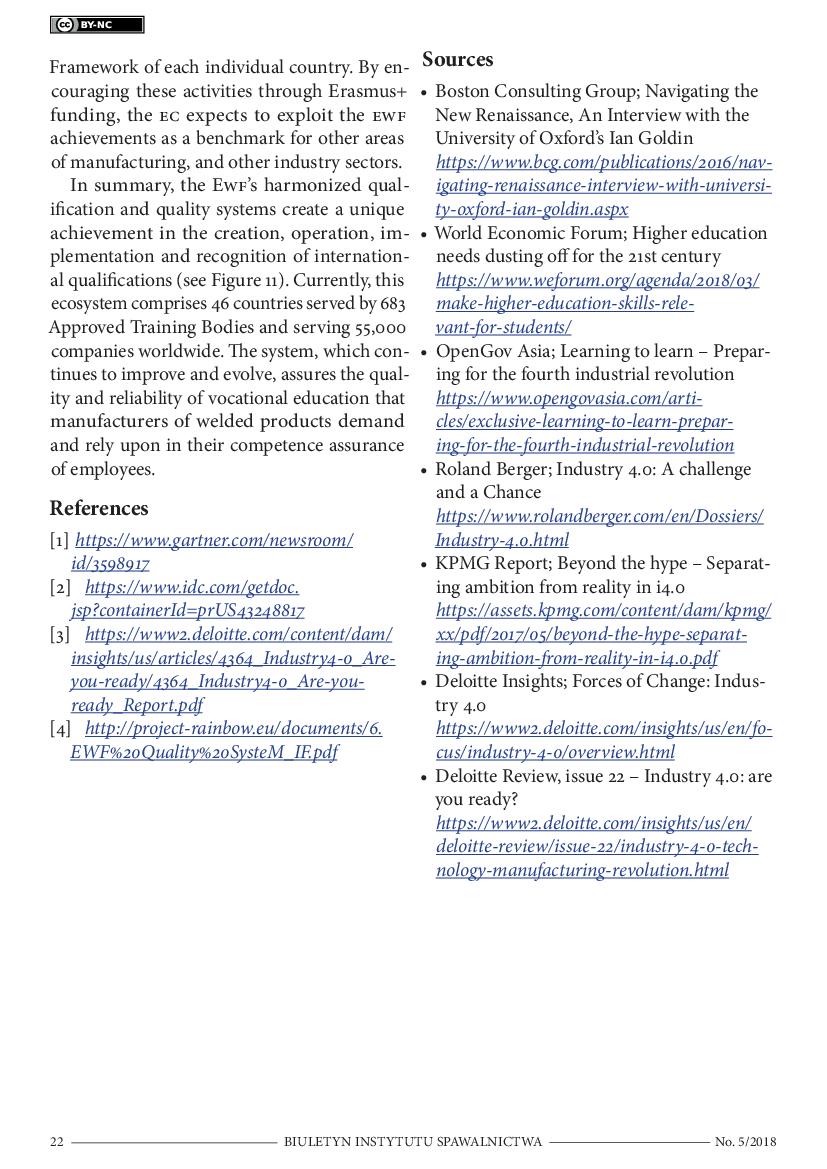The importance of an integrated quality assurance system in professional qualification development and implementation
The increasing pace of technological changes in manufacturing is reducing the useful life of formal qualifications. High level monolithic qualifications require large amounts of effort to review and revise them, especially in an international context. The fourth industrial revolution is pushing traditional education systems to their limits and shedding light on their shortcomings. Ensuring that the future workforce is qualified for the challenges of Industry 4.0 involves addressing several aspects. Employers and their employees demand highly relevant pre-employment education, delivering both the fundamental engineering knowledge and addressing the latest materials and processes. The EWF education and qualification approach aims to provide the right qualification at the right time. Its success is derived from a robust and industry-focused quality system, with wide stakeholder involvement from welding research institutes, educational organisations, certification bodies, companies, trainers and trainees. The cooperative approach of EWF members and stakeholders delivers harmonized quality assurance that has ensured the reliability and credibility of the international qualifications so that they have become trusted by employers. This paper aims to present how international qualifications support the implementation and exploitation of new technologies, enabling innovation in manufacturing.
doi: 10.17729/ebis.2018.5/1
 1 / 10
1 / 10
 2 & 3 / 10
2 & 3 / 10
 4 & 5 / 10
4 & 5 / 10
 6 & 7 / 10
6 & 7 / 10
 8 & 9 / 10
8 & 9 / 10 10 / 10
10 / 10

